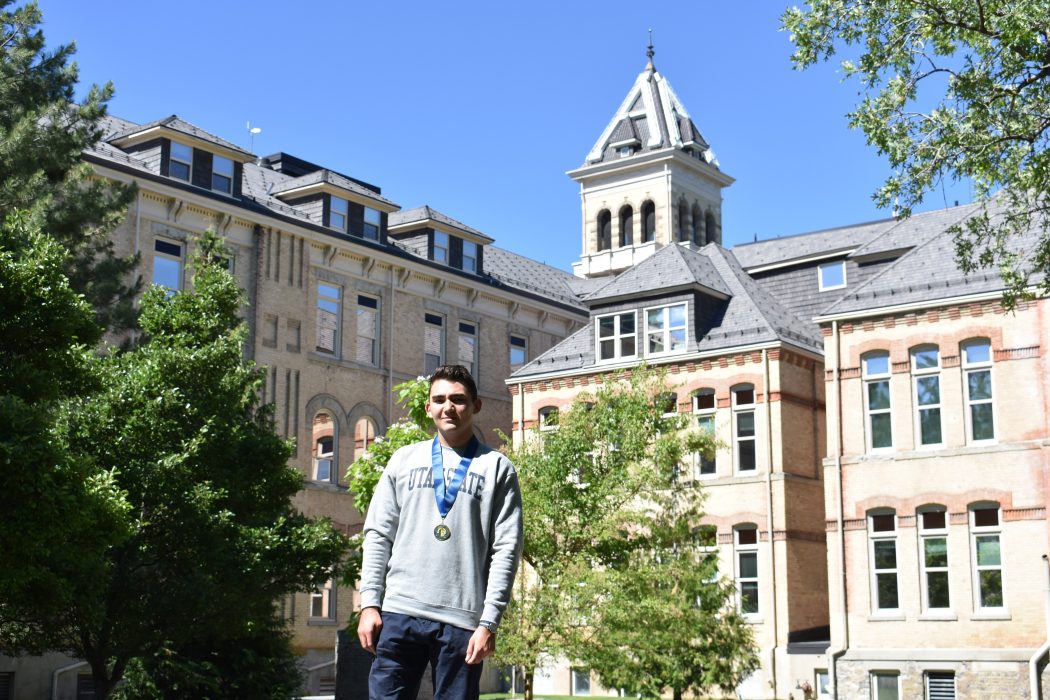Review: Utah State University
I recently finished my final classes here at Utah State University. Having been raised by my Latter-day Saint, “Mormon” grandparents in California, I followed in the footsteps of many of my relatives and came to Utah for my undergraduate studies. I only applied to universities in Utah actually, and after visiting all the different campuses, I was confident Utah State was the choice for me. It felt the most like a proper university and had a wonderful campus atmosphere. Aesthetics are a huge motivation of mine, and something about USU had a real “Hardy Boys”-eque, small town mystery novel aesthetic to me. I must also not fail to mention that the university was also highly affordable, which is valuable in a world swamped with exorbitant student loans and broken dreams.
Yet, despite my affinity for the campus, I admittedly did not have high expectations coming up to Logan. I knew USU is traditionally ranked over 200 in the US News Best National University Rankings and it is a “state school.” While I had biases and stereotypes about USU because of these factors, I am very happy to admit once I began my studies, I realized all my concerns were ill-founded. My experience at USU profited me immensely, and I know my educational experience here provided me with the same level of education any high-quality American university would have granted me.
The pinnacle of my USU experience was the department of economics. This department houses some of the brightest professors at our university. I knew the moment I walked into my economics 1500 class, I had found a great community and a home. I had no intention of majoring in economics when I began my studies, but after one class I was converted. Given the stereotypes about modern college education, I was so relieved to have stumbled into an academic environment that actually valued freedom of speech, open communication and the challenging of ideas. It’s a place where free speech is promoted, and where ideas can be discussed and questioned without fear of institutional and cultural suppression. My professors were a treasure trove of information and were willing to help me out with any questions I had, whether it was about economics or life in general. You would think after years of discussing the same ideas, discussions with students would become monotonous, but this was not the case for the economics faculty. Whenever I wanted to discuss ideas, their eyes would light up with excitement, ready to meet the task with the youthful vigor of a curious child.
USU’s student body is rather homogenous, but this is not to say USU isn’t home to some very unique individuals. I knew “Mollie Mormons,” ex-Mormons, people identifying as Marxists, atheists, Catholics and a whole slew of other people. While USU may look rather uniform on paper, the reality is if you look hard enough, you can meet some fascinating and diverse people.
I talked earlier in this article about Utah State’s relatively middle-of-the-road national ranking. At first glance, this might appear to be a bad thing, but when framed in the proper mindset, it is actually quite beneficial. I am a huge proponent of the idea that, in life, we need to accept things for how they really are and not how we would like them to be. Utah State is not a bad university, but it does not have the reputation of an Ivy League school or anything. Therefore, we should not expect to get by in life relying on USU’s brand value. Sun Tzu, in “The Art of War” establishes an idea called the death-ground strategy. This technique argued generals should land their troops on “death ground,” with their back to the beaches, making it so the soldiers have no choice but to fight their way out. We are a state university and do not have the luxury of having a traditionally prestigious name. Yet in my experience, like soldiers fighting on death ground, for some students at USU, this unique position pushes them to cultivate their talents and creativity in a way that might not have occurred if they had the luxury of an elite name to fall back upon. This creates a sense of urgency and hunger that produces very unique conditions for success, truly allowing the students to dare mighty things. I’m personally glad that I got the state school experience, as I truly believe in our modern world, heterodox experiences are often more value generative than the traditional tracks.
Though despite our public nature, the Huntsman Scholar program was a wonderful experience and truly felt like an elite private educational experience housed in a public university. I thoroughly enjoyed the meaningful engagements I had with program mentors and professors, as well as the exposure I had to a select group of driven business students, students I know will remain in my professional network for life. For any incoming business students, I strongly recommend applying to the scholar program if you want to hedge all the immense benefits that the business school has to offer. And this is but one of an abundance of fantastic opportunities at USU.
So long as you are proactive about pursuing them, USU is a treasure trove of opportunities and experiences. You can study abroad, write for the school newspaper, or do a whole other slew of other things, many of which are freely available. The marginal utility of one’s degree ultimately depends on the activities and experiences one pursues outside of class, and if you play your cards right, you can make your USU diploma very valuable.
This was a review of my experience at USU over the last couple of years, but USU is a rapidly changing institution. The USU I attended in 2017 is not the USU existing in 2020. There are emerging postmodern cultural elements I find quite disconcerting. It would be a tragedy if USU lost the intellectually open and free environment that made the university so great. I am also quite concerned certain offices on our campus are counterproductive to this goal of academic openness. I worry the “hangman and the bloodhound,” as Friedrich Nietzsche might call them, loom in the distance, those who shroud their will to be tyrants in words of virtue. Let us choose to be an institution that supports freedom of speech and understands “when you tear out a man’s tongue, you are not proving him a liar, you’re only telling the world that you fear what he might say,” as George R. R. Martin once said.
I am an Aggie and will always owe my academic beginnings to Utah State University, wherever my career may take me. I will remember most of my time at this institution fondly and hope the university will continue its legacy for many years to come.

Kristian Fors is a student at Utah State University majoring in Economics and is an opinion columnist for the Utah Statesman. He enjoys studying psychology, traveling and living life as intentionally as possible.
— krfors@gmail.com

